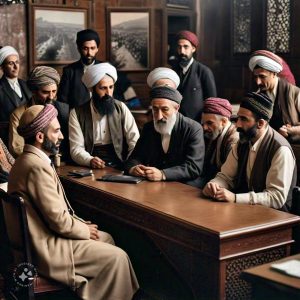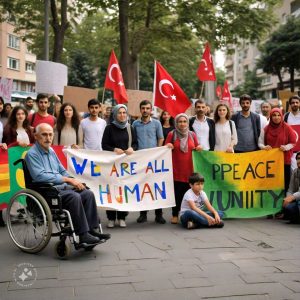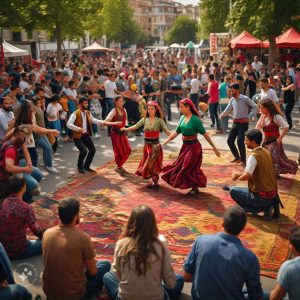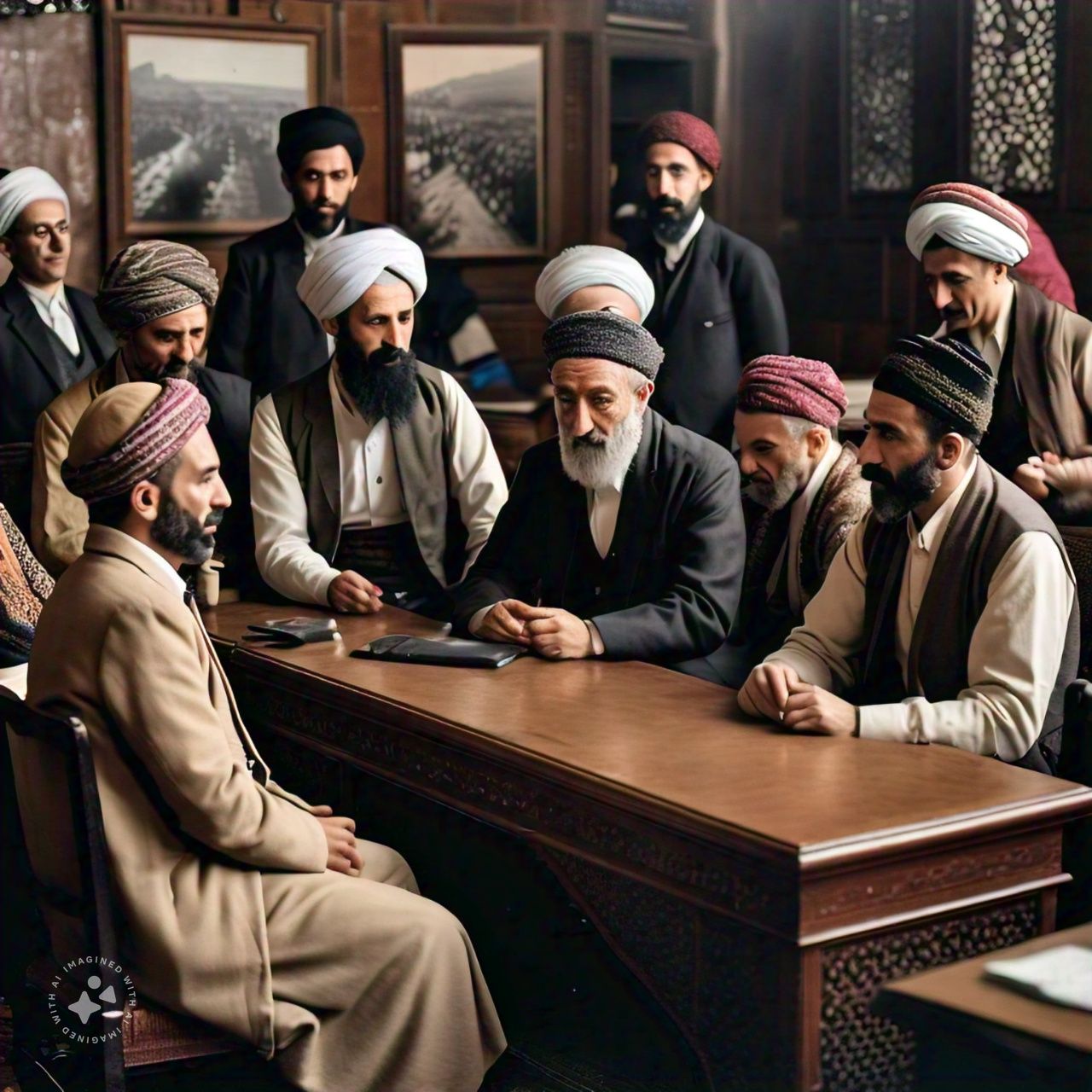Introduction
The Kurdish-Turkish conflict and Reconciliation one of the most protracted and complex conflicts in the Middle East, with deep historical roots and significant socio-political implications. The conflict primarily revolves around the Kurdish population in Turkey, which has long sought greater autonomy, recognition, and rights within the Turkish state. This article aims to explore the historical context of the conflict, the major actors involved, the socio-political ramifications, and the ongoing reconciliation efforts aimed at finding a peaceful resolution.
Historical Context
The origins of the Kurdish-Turkish conflict can be traced back to the late Ottoman Empire and the subsequent establishment of the Republic of Turkey in 1923. The Kurds, who constitute one of the largest ethnic minorities in Turkey, have historically faced cultural suppression and political marginalization. In the early years of the Republic, Turkish national identity was promoted at the expense of ethnic minorities, including the Kurds. The 1925 Sheikh Said Rebellion marked a significant uprising by the Kurds against the Turkish government, signaling the beginning of a long and tumultuous relationship.

In subsequent decades, several uprisings and movements emerged, driven by the Kurds’ desire for recognition and rights. The establishment of the Kurdistan Workers’ Party (PKK) in 1978 was a pivotal moment in the conflict. Led by Abdullah Öcalan, the PKK initially sought an independent Kurdish state but later shifted its goals toward autonomy and cultural rights. The PKK’s armed struggle against the Turkish state escalated in the 1980s, leading to a violent conflict that has claimed tens of thousands of lives and displaced many more.
Major Actors in the Conflict
The Kurdish-Turkish conflict involves various actors, each with distinct motivations and goals.
1. The Turkish State
The Turkish government, led by the Justice and Development Party (AKP) since 2002, has maintained a hardline stance against the PKK, viewing it as a terrorist organization. The government has implemented military operations in Kurdish-majority areas and pursued policies aimed at suppressing Kurdish identity and aspirations. However, there have been periods of attempted dialogue and reconciliation, particularly during the “Kurdish opening” initiative in 2009-2011, which aimed to address Kurdish grievances.
2. The Kurdish Population
The Kurdish population, estimated to be around 20% of Turkey’s population, consists of various factions with differing approaches to achieving their goals. While the PKK remains the most prominent group advocating for Kurdish rights, there are also political parties like the Peoples’ Democratic Party (HDP) that seek to engage in the democratic process. The HDP has garnered significant support from Turkish citizens who advocate for peace and equality, emphasizing the importance of dialogue over violence.

3. International Actors
The Kurdish-Turkish conflict has drawn the attention of international actors, particularly in the context of regional dynamics. The Syrian civil war and the rise of the Syrian Democratic Forces (SDF), a Kurdish-led group, have complicated the situation further. The SDF’s collaboration with the U.S. in the fight against ISIS has brought increased international visibility to the Kurdish cause, influencing Turkey’s approach to both the PKK and broader Kurdish aspirations.
Socio-Political Ramifications
The Kurdish-Turkish conflict has profound socio-political ramifications, not only for the individuals directly involved but also for Turkey’s national identity and regional stability.
1. Humanitarian Crisis
The conflict has resulted in a humanitarian crisis, with numerous displaced persons and a significant loss of life. The Turkish government’s military operations in Kurdish regions have led to widespread destruction, exacerbating the already precarious living conditions of many Kurds. Human rights violations, including extrajudicial killings and arbitrary detentions, have been reported, leading to increased international scrutiny.
2. Political Polarization
The ongoing conflict has contributed to political polarization in Turkey, with debates surrounding national identity, security, and human rights becoming increasingly contentious. The government’s approach to the Kurdish issue often intersects with broader issues of democracy and civil liberties, leading to clashes between state security measures and the rights of ethnic minorities.
3. Regional Stability
The Kurdish-Turkish conflict poses challenges for regional stability, particularly in the context of the broader Middle East. The autonomy movements among Kurdish populations in neighboring countries—such as Iraq and Syria—have implications for Turkey’s security concerns. The potential for a unified Kurdish front could heighten tensions and lead to further conflict.
Reconciliation Efforts
Despite the challenges, there have been various efforts toward reconciliation between the Kurdish population and the Turkish state.
1. Dialogue Initiatives
The “Kurdish opening” initiative in 2009-2011 marked a significant attempt by the Turkish government to engage with the Kurdish issue. This initiative involved dialogue with Kurdish representatives and aimed to address cultural and political grievances. However, the process faced criticism for lack of transparency and commitment, leading to its eventual stagnation.
2. The Role of Civil Society
Civil society organizations play a crucial role in fostering dialogue and reconciliation. Many grassroots movements advocate for peace, human rights, and coexistence between different ethnic groups in Turkey. Initiatives that promote cultural exchange, education, and understanding among communities have emerged as vital components of the reconciliation process.

3. International Mediation
International actors, including the European Union and the United Nations, have expressed support for a peaceful resolution to the conflict. Their involvement may encourage both the Turkish government and Kurdish representatives to pursue meaningful dialogue. However, the effectiveness of international mediation often depends on the willingness of the primary actors to engage in negotiations sincerely.
Challenges to Reconciliation
While there are ongoing efforts to promote reconciliation, several challenges persist:
1. Trust Deficit
A significant barrier to reconciliation is the deep-seated mistrust between the Kurdish population and the Turkish state. Historical grievances, ongoing violence, and the Turkish government’s heavy-handed approach have created a pervasive sense of distrust. Building trust requires consistent actions and policies that demonstrate a genuine commitment to addressing Kurdish rights and aspirations.
2. Political Will
The lack of political will from the Turkish government to engage in meaningful dialogue hampers reconciliation efforts. While some officials express support for peace, the prevailing narrative often prioritizes national security concerns over addressing the root causes of the conflict. A shift in political discourse and leadership commitment is essential for progress.
3. Fragmentation of Kurdish Movements
The fragmentation within the Kurdish movement poses a challenge to reconciliation. Different factions, each with distinct agendas, complicate efforts to present a unified front in negotiations. It is crucial to find common ground among these factions to facilitate meaningful dialogue and create a cohesive strategy for addressing Kurdish rights.
Conclusion
The Kurdish-Turkish conflict and and Reconciliation represents a complex tapestry of historical grievances, political aspirations, and socio-cultural dynamics. While significant challenges remain, the potential for reconciliation exists through continued dialogue, grassroots initiatives, and international support. Building a peaceful future requires a genuine commitment from all parties involved to acknowledge past injustices, foster understanding, and work collaboratively toward a shared vision of coexistence. The journey toward reconciliation is arduous, but the promise of peace and mutual respect for diverse identities remains a worthy goal for the people of Turkey and the Kurdish population.

